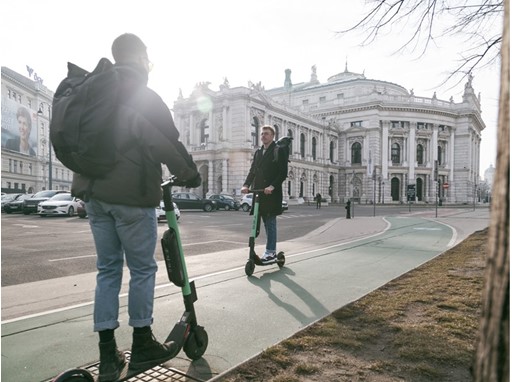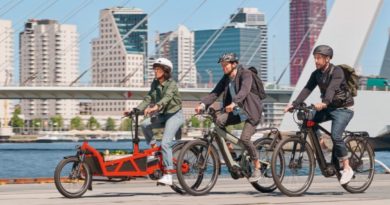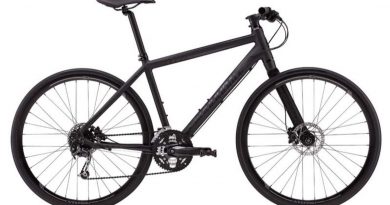e-Scooters on the cusp of getting Government approval?
A consultation into the viability of legalising public use of e-Scooters is to launch in February with the Government reportedly keen to align legislation with e-Bike rules.
The Times reports that the consultation will be quickly followed by trials in cities, with nationwide approval is the demos are deemed a success.
If the e-Scooter is to fall in line with electric bikes we can expect a speed limited to 15.5 mph in assistance. Many on the market currently operate via a trigger on the handlebar that has to be pressed, often in combination with a manual push start.
Though yet to break cover, we can reasonably expect questioning to centre around whether the electric scooter is fit for the road, or better suited to shared use cycle paths. While that may irk those who are not fans of such paths, there is evidence that, where legalised, e-Scooter use has led to the creation of more and wider paths to accommodate a higher flow of cycle and scooter traffic.
The consultation is likely to raise the issue of whether helmets should be advisory or compulsory, which runs a very real risk of re-igniting a similar debate on electric bikes. Where helmet use is mandatory cycling levels have typically declined. Many cycle campaigners badge the issue a distraction from providing safe cycle lanes.
The bicycle industry has taken note of what could well be a potential diversification of our business into wider e-Mobility. The subject of how to move masses of people via micro mobility has been a hot topic for years and the cycling business is well placed with key knowledge and service skills.
Moore Large took to Core Bike this week to debut Reid Scooters to the UK market.
Speaking to CyclingIndustry.News Moore Large’s Adam Garner said: “We’ve not seen orders so strong since the GSD debuted, there has been a very keen interest at CoreBike and no negative comments as we could have expected.”
Reid ‘s UK MD Rob Akam introduced stores to his firm’s £500 and £550 e-Scooters, demonstrating how the functionality can be fine tuned via a mobile application.
Features of the folding 14 kilo unit include the ability to alter the lighting, lock electronically, track battery and speed levels and much more. A 7.5 A.h lithium ion battery powers the current models, though two further, cheaper models with alternate specs are due later this year. Small bumps are ironed out by a rear suspension that tucks in behind the battery, which is concealed within the deck.
Searches for e-scooters rose by 171% in the wake of the announcement, according to trend watchers PriceSpy.
Vanessa Katsapa, PriceSpy‘s UK country manager comments: “The rise in the popularity of e-scooters following the government’s announcement is understandable. Over the past two years, their demand has surged.
“E-scooters offer quick and easy travel with a small carbon footprint. In cities around the world, these new gadgets are revolutionising how people get around and tend to be kinder to the environment than a car or moped, while requiring less physical exertion than a traditional bicycle.”



